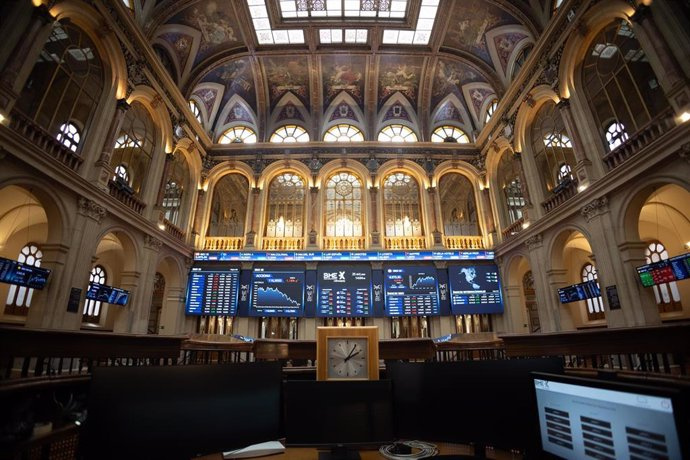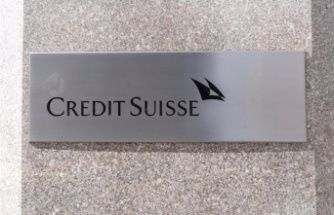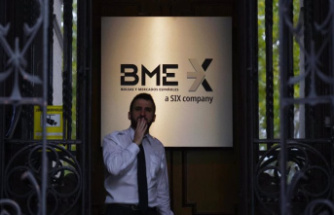Banks retreat sharply, around 3%, at the idea of an ECB rate cut in June
MADRID, 11 Abr. (EUROPA PRESS) -
The Ibex 35 closed this Thursday with a fall of 1.16%, reaching 10,649.8 points, following the decision of the European Central Bank (ECB) to pause interest rates again, which motivated the fifth consecutive negative closing of the index, the worst streak since last October.
Specifically, the selective has started the session lower, but with losses stabilized at around 1% and balancing at 10,700 points, a level that seemed to hold after the ECB's decision but which has finally lost due to the influence of pressure. bearish trend that affected the New York indices in the afternoon.
The Governing Council of the European Central Bank (ECB) has fulfilled the script this day by keeping interest rates unchanged, so that the reference rate for its refinancing operations will remain at 4.50%, while the rate The deposit rate will remain at 4% and the loan facility rate at 4.75%.
In this way, the issuing institute leaves rates intact for the fifth consecutive meeting since it stepped on the brakes at its October meeting, after undertaking ten consecutive increases in the price of money, which placed it at its highest level in more than 20 years.
The ECB has stated that interest rates "are at levels that are contributing significantly to the ongoing disinflation process," although it has indicated that domestic inflationary pressures are "intense" and keep the prices of services "high." ".
For her part, the president of the European Central Bank (ECB) has left the door open for the organization to undertake a lowering of interest rates at its meeting next June if the evaluation of the outlook and the data reinforce "even more "confidence that inflation is approaching the 2% target in a sustained manner, although he has stressed that the entity will continue to make its decisions meeting by meeting and without committing in advance to any adjustment path, limiting itself to warning that" There will be obstacles along the way."
Likewise, after yesterday's release of US inflation data for March that was higher than expected and which could delay the start of rate cuts by the Federal Reserve (Fed), Lagarde stressed that the ECB is "dependent on the data, not dependent on the Fed".
Just yesterday, with the market already closed, the minutes of the last Fed meeting were known, in which some members of the governing body were suspicious of high inflation and warned of its entrenchment, which would give rise to a more aggressive monetary policy. to stop inflation.
The market has reacted assuming that the ECB will distance itself from the Fed with a first rate cut in June, as Europa Press has extracted from statements collected from analysts and executives from entities such as Tikehau capital, Pimco or Columbia Threadneedle Investments.
Also internationally, China's consumer price index (CPI) recorded a year-on-year increase of 0.1% last March, in contrast to the 0.7% rise in the previous month, according to data published this month. Thursday by the National Statistics Office (ONE). The weakness of inflation recorded in March in China is largely due to the 1.4% drop observed in food prices, which in February had fallen by 0.1% annually.
Back in the United States, this day has highlighted in that country's 'macro' agenda that the producer price index (PPI) registered an increase of 0.2% last March, which implies a moderation since the increase from 0.6% the previous month and 0.4% in January.
On the other hand, the President of the Government, Pedro Sánchez, met today with representatives of the real estate and banking sector in Moncloa to analyze housing problems and the latest measures that the Executive has approved, such as the procedure to eliminate the ' Golden Visa' for foreigners in exchange for buying homes or guarantees to finance the payment of the down payment for the purchase of a property for young people.
Thus, Grifols presided over the losses with a fall of 4.28%, followed by IAG (-3.85%); Banco Sabadell (-3.13%); Caixabank (-3.11%); BBVA (-2.93%); Unicaja (-2.91%); Aena (2.81%); Banco Santander (-2.63%); Repsol (-1.92%) and Bankinter (-1.88%).
On the other hand, Acciona Energía (2.43%) has led the gains; Solaria (2.33%); Mélia Hotels (2.27%); Colonial (1.59%) and Iberdrola (1.04%).
The declines have been the common denominator in the stock markets of Europe: Paris has subtracted 0.27%; London 0.47%; Frankfurt 0.79% and Milan 0.96%.
At closing time in Europe, in the raw materials market, Brent oil, the benchmark in the Old Continent, fell by 0.62% and lost the level of $90 per barrel, while West Texas Intermediate (WTI) fell 1%, to $85.4.
At the same time, in the foreign exchange market, the euro depreciated 0.25% against the dollar, until trading at an exchange rate of 1.0717 'greenbacks' for each euro.
In the debt market, the yield on the Spanish ten-year bond has closed at 3.278% after adding four basis points. In this way, the risk premium against German debt was close to 82 points.













